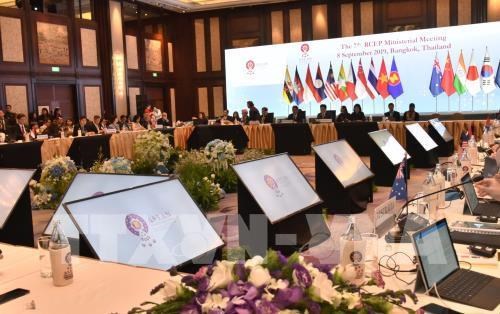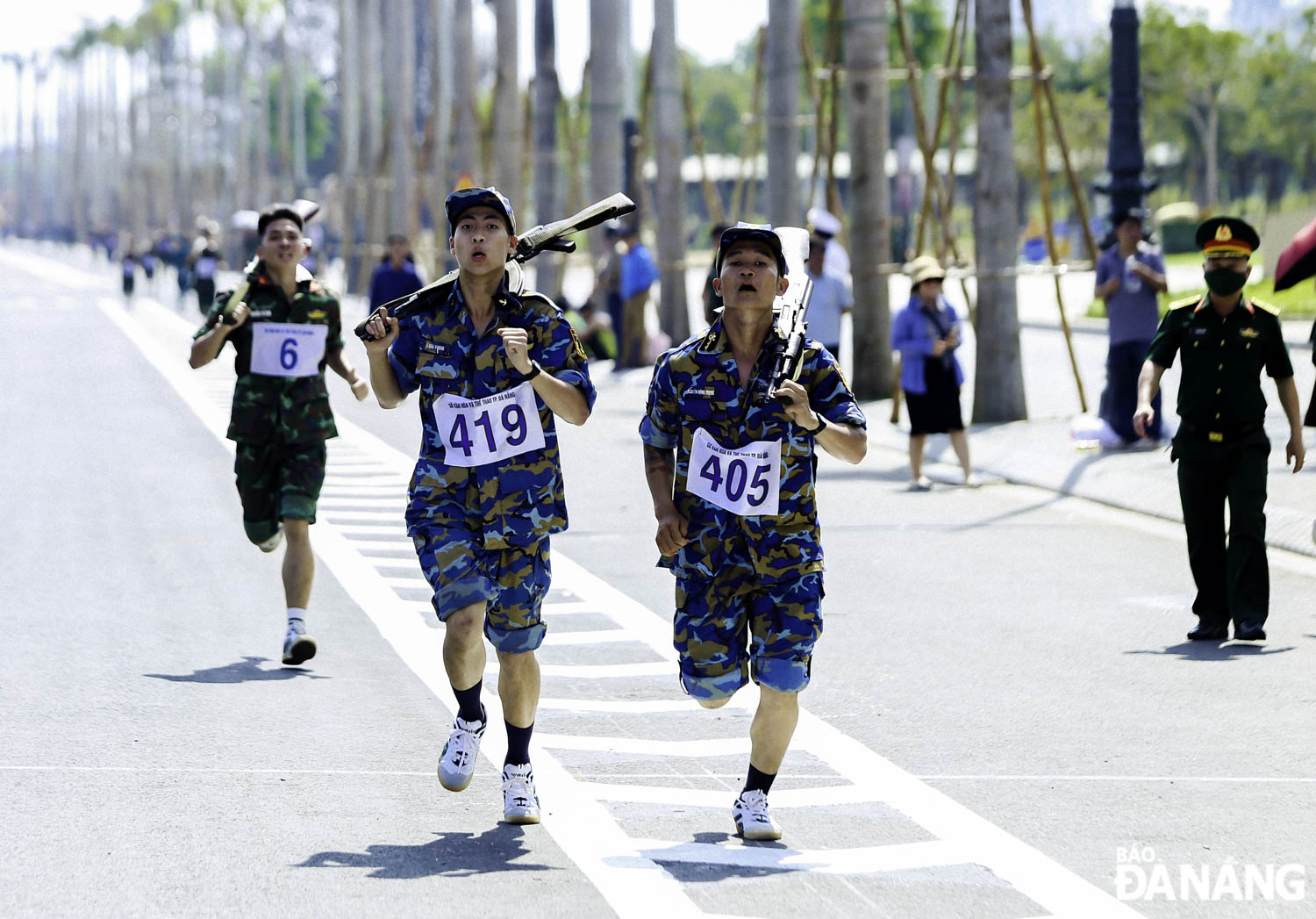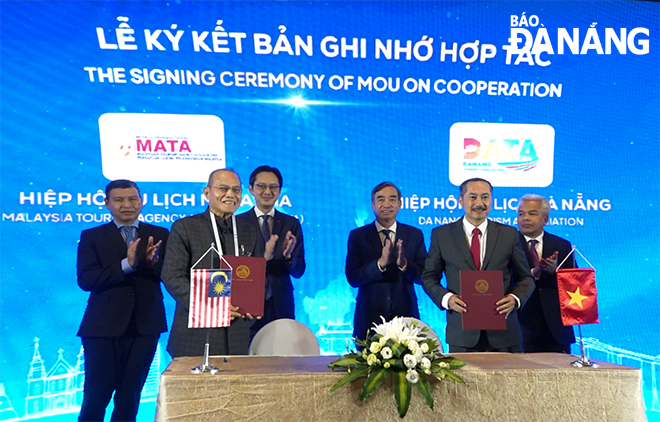Thailand works to speed up RCEP talks
Thailand will hold bilateral negotiations with Japan, New Zealand and India in an attempt to finish talks on the Regional Comprehensive Economic Partnership (RCEP) by November.
 |
| At the 7th RCEP Ministerial Meeting in Thailand in September (Photo: VNA) |
Local media quoted Auramon Supthaweethum, Director-General of the Trade Negotiations Department of Thailand, as saying that the country has scheduled bilateral negotiations with the three partners during the RCEP trade negotiating committee's meeting set for Viet Nam’s central city of Da Nang later this month, to thrash out differences on contentious issues such as opening markets for sensitive goods and services.
The RCEP initiative was launched in November 2012 with the aim of boosting economic cooperation between 10 ASEAN countries and six dialogue partners, namely China, Japan, the Republic of Korea, Australia, India and New Zealand.
Negotiators from all the participating countries have concluded talks on seven articles from a total of 20, including customs and trade facilitation; state procurement; economic and technical cooperation; and small- and medium-sized enterprises.
The 13 remaining articles concern various issues such as intellectual property rights, telecommunications and market expansion for goods, services and investment.
The talks have been hampered by a lack of free trade agreements between some partners, such as China-Japan, India-China and India-Australia-New Zealand.
In a recent meeting, ASEAN economic ministers assigned the RCEP trade negotiating committee to follow up on talks in Da Nang from 19-27 September, hoping to convince them of the flexibility and mutual benefits for all members, Auramon said.
As the ASEAN chair this year, Thailand’s negotiators will exert all effort to finish the RCEP talks, she said, adding that the committee’s meeting in Da Nang will try its best to conclude the technical negotiations.
Once signed, the RCEP will form the world’s largest free trade area with about 3.56 billion people and 30 percent of the global gross domestic product.
(Source: VNA)








